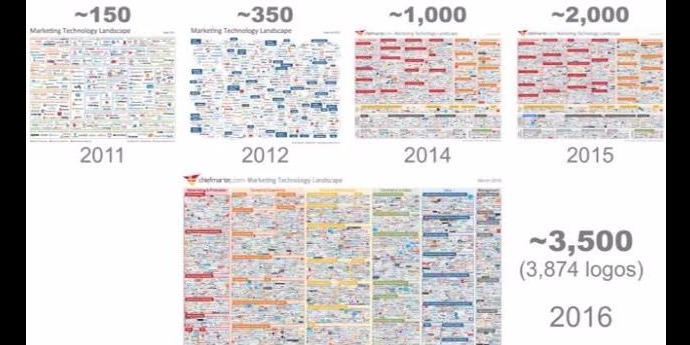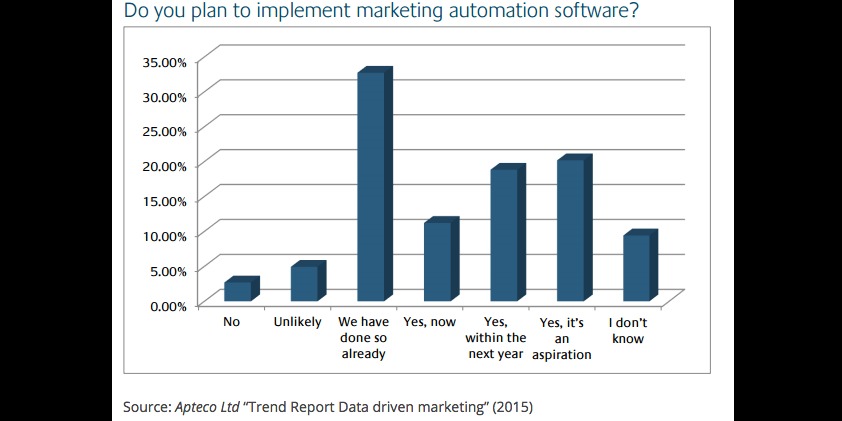

How to choose the best alternative to Hubspot and Marketo!
It's difficult for a start-up to put big bucks in marketing technology. Here are few tips for you to pick right technology partner that will get your things done.
Monday October 03, 2016 , 3 min Read
The Annual Marketing Technology Landscape report published by ChiefMartec showcases 3,874 Marketing Technology (MarTech) players in 2016, globally. The number of MarTech players have been doubling year on year, on an average. In this scenario, the choice of a right partner is of paramount importance for brands across the spectrum.

undefined
A major reason for this crowded market space is the increasing acceptance and adoption of such platforms by marketers, across the globe. IDC forecasted the marketing technology spends to exceed $32 Bn annually by 2018. The table below showcases an excerpt from a 2015 research where over 80% of marketers did not dispute the benefits that could be accrued by a Marketing Automation platform, and had already implemented or had plans to implement a platform in their organization.

undefined
In light of this growing acceptance of marketing automation platforms, there have been plenty of interesting companies who have launched their marketing automation platforms. So how do you choose the platform best suited to your business?
Define your brand’s use case – are you looking for a B2B platform or a B2C platform?
Is your brand positioned towards businesses or consumers? Do you deal with a few hundred leads on a monthly basis or are you trying to engage with hundreds of thousands of customers on a monthly basis? If your response is the latter, then the customer record based pricing of platforms like Hubspot and Marketo may quickly get prohibitive for your business. Time to look at alternates?
Look for tight integration with social
Does your business sell or engage with customers across social channels? If so, you will need to look at a platform with push and pull capabilities across social channels. You would need to ensure that your marketing platform supports the social channels that are of relevant interest to you. Whether it can pull your wall’s content including posts, comments and likes, enabling you to manage your social profiles from a single interface will become pertinent when your customers expect real-time responses to their comments on your wall.
Pricing matters
And how much are you willing to pay for such a platform? What is the ROI you are expecting from such a platform and are your internal teams and processes aligned to enable you to track the same effectively? Be sure you have these metrics in place before a purchase decision is made. Some marketing platforms can cost you fortune, then there are applications like FirstHive that get things done , starting at just $49/mo.
Ease of use
Does not matter whether you are a marketing novice or run large scale marketing campaigns for a living, if you are sitting in your office at 9 pm on a Friday evening trying to ensure your brand engagement across channels is optimal and giving you maximum bang for your buck, you better choose a platform with beautiful dashboards and an intuitive UI, for that is when you will realize the value of the UX the most.
Support structure
What is the level of support you expect from your marketing platform? Are you looking for a dedicated account manager to help you configure your campaigns, or are you more a do-it-yourself kinda marketer who prefers a low contact email or chat support. Keep in mind that your choices impact the value you can derive from the platforms, and may also have an impact on the price or ROI driven.
Are there any other parameters you would consider? Let us know in the comments below.




